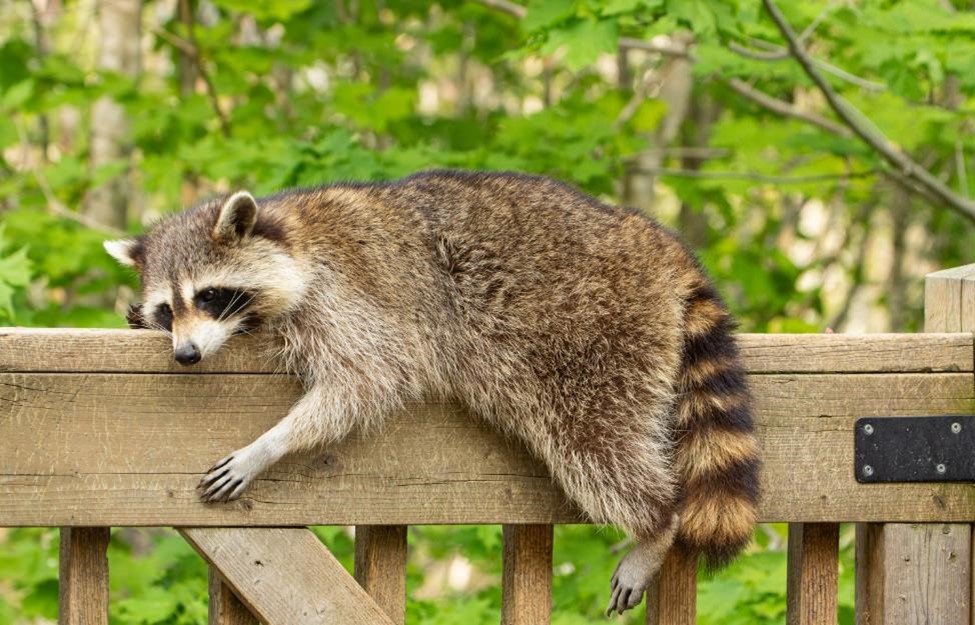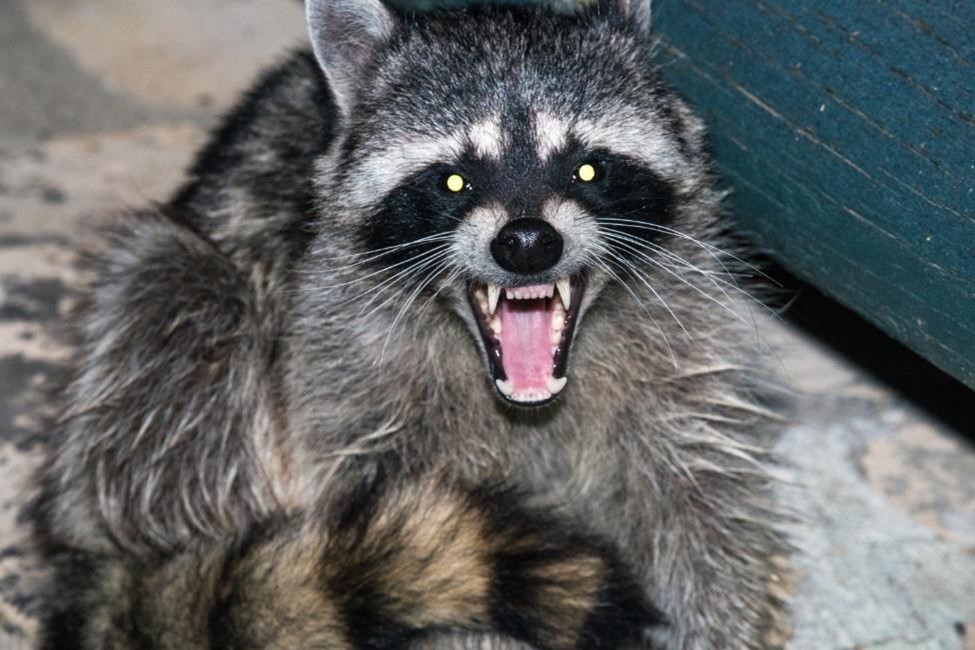Thanks to their face markings that help them to look like thieves, raccoons always seem just a little mischievous from their looks alone. But that mischievousness isn’t just a mirage—raccoons are always seemingly on the hunt for a particular snack in your trash can or trying to get into your dozy attic.
Here at Critter Control of Tampa, we’ve encountered more than our fair share of these raccoons. They’re ever more common in Florida than it seems like they used to be, and you’re sure to run into one at one point or another. We’re here to provide raccoon control & removal as well as education so you can make the right decision.
What Are Raccoons?
Raccoons are mammals that aren’t much different in overall size from cats or small dogs. Your average adult raccoon is a little over two feet long from snout to hind and weighs somewhere between 10 and 20 lbs.
Alongside rats and squirrels, raccoons are some of the most common pest mammal that you’ll find near your property. But other than being a fellow mammal, raccoons are not related to rats or squirrels—they aren’t rodents, and they aren’t vermin. Raccoons have excellent dexterity with their claws and sport sharp teeth as well.
What Do Raccoons Eat in Florida?
Raccoons are omnivores, meaning they will eat meat, vegetables, fruit—whatever they can get their little paws on. This means that they’re perfectly happy with eating everything from much smaller animals (like frogs and insects) to the veggies in your garden. Raccoons don’t like to exert effort when looking for food and are perfectly fine with scrounging scraps.
What does this mean for you? Well, raccoons will eat anything in Florida. That includes your trash, your garden, and any other food that you may leave out. Particularly venturesome raccoons may even try to become unwanted denizens in your home or garage if you leave your door open for too long.
Can You Find Raccoons in Florida During the Day?
Yes, you can find raccoons in Florida during the day. That’s not because they particularly enjoy the sunlight—raccoons are nocturnal by nature and are most active during the night. But in a suburban or urban environment, raccoons are much more likely to wander out during the day. So, if you see one in your yard, don’t do a double take. It’s common.
Can You Have a Pet Raccoon in Florida?

Yes, raccoons can be kept as a pet in Florida. But doing so is generally a bad idea, which is why Florida is one of only 16 states where raccoon pet ownership is legal. Raccoons may be cute and exhibit behaviors not unlike a friendly dog, but there are serious downsides. They aren’t domesticated, and unlike dogs or cats, their flexible digits mean that doors and jars and other items that might have previously been safe are not safe whatsoever.
Furthermore, you’ll probably find a problem finding a vet who will treat a raccoon, as most of your standard veterinarian clinics are either unequipped or will refuse to do so.
Florida Raccoon Laws
Owning a raccoon as a pet isn’t easy, either. Raccoons qualify under the Florida Fish and Wildlife Commission under the Class III wildlife as a personal pet designation. It requires an application that must be renewed every two years. Additionally, you can’t take your raccoon out in public. For that, you’ll need a separate exhibition license.
How Damaging are Raccoons in Florida?
Raccoons may seem cute at times, but they are often anything but. They are wild and undomesticated, meaning that they are unpredictable and will have no qualms about attacking humans if they feel cornered. There are three main risks that raccoons pose.
- Property damage. Raccoon claws and teeth can rip up siding and insulation and can even block chimneys and do other damage to your roof—not to mention the havoc they can cause on your garbage cans and in your garden.
- Risk of bites and scratches. Children are particularly susceptible to raccoon claws and teeth and are less likely to give them proper distance. Scratches can get infected, causing further health issues.
- Rabies. Raccoons are the single greatest mammalian transmitter of rabies in Florida. Plus, raccoons with rabies will be more aggressive and more likely to attack.
Raccoon Control and Removal in Greater Tampa
While there’s not always a cause for concern if you spy a raccoon in your neighborhood every so often, you should definitely contact the pros at Critter Control of Tampa should you encounter signs of a raccoon problem at your property. Give us a call should you encounter torn siding, hear scratches in the attic, or smell rank odors in your home, as it could portend a raccoon infestation.
Schedule your free raccoon inspection today and get right back on track to being free of raccoons at your property. Our wildlife experts will work to get to the bottom of the problem and help ensure that it doesn’t happen again.






